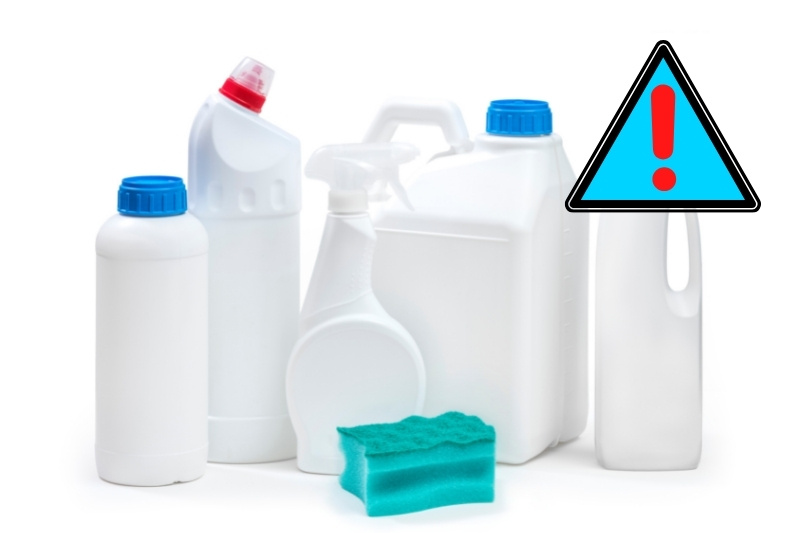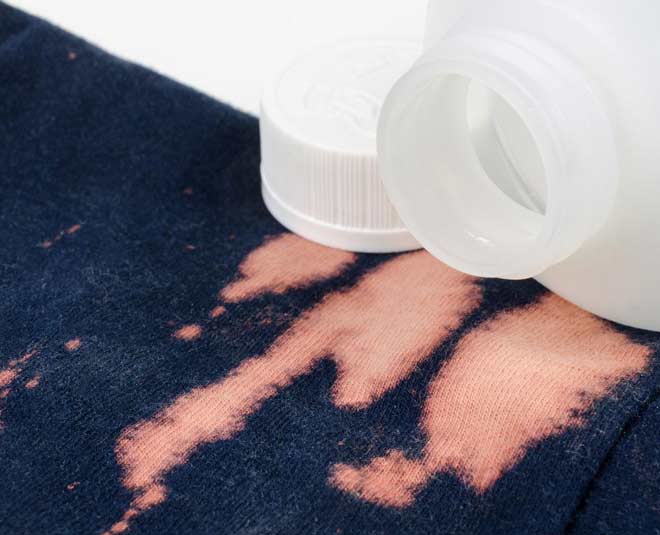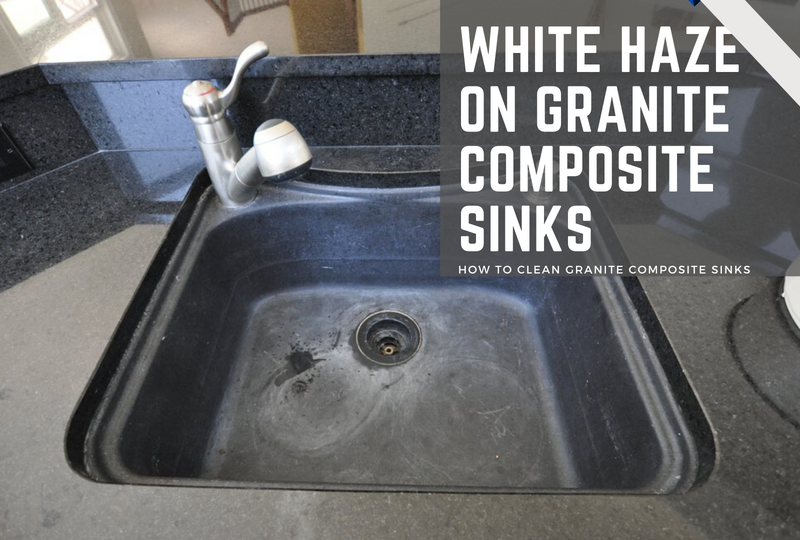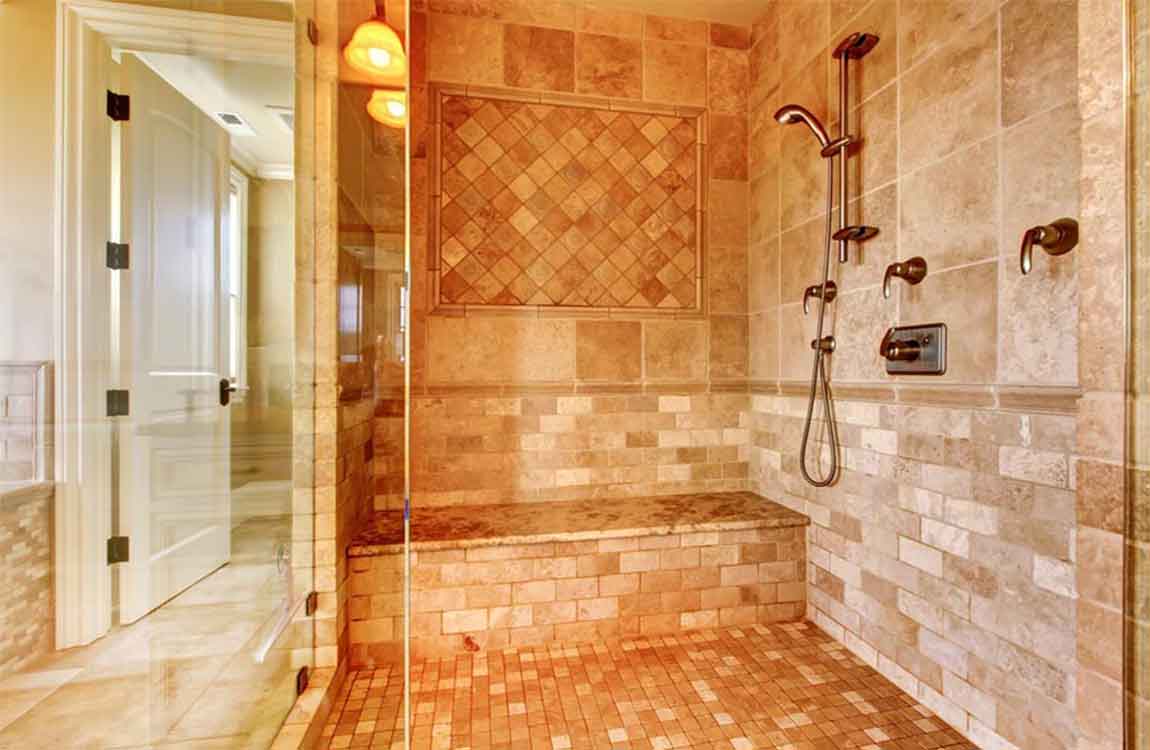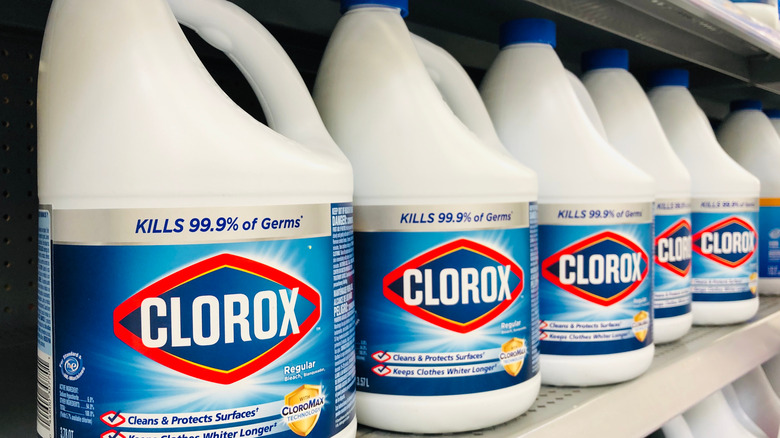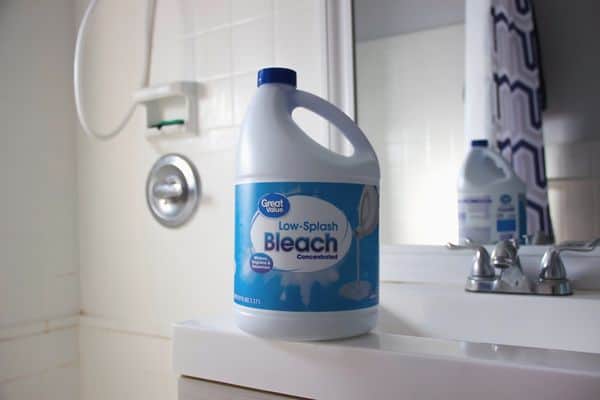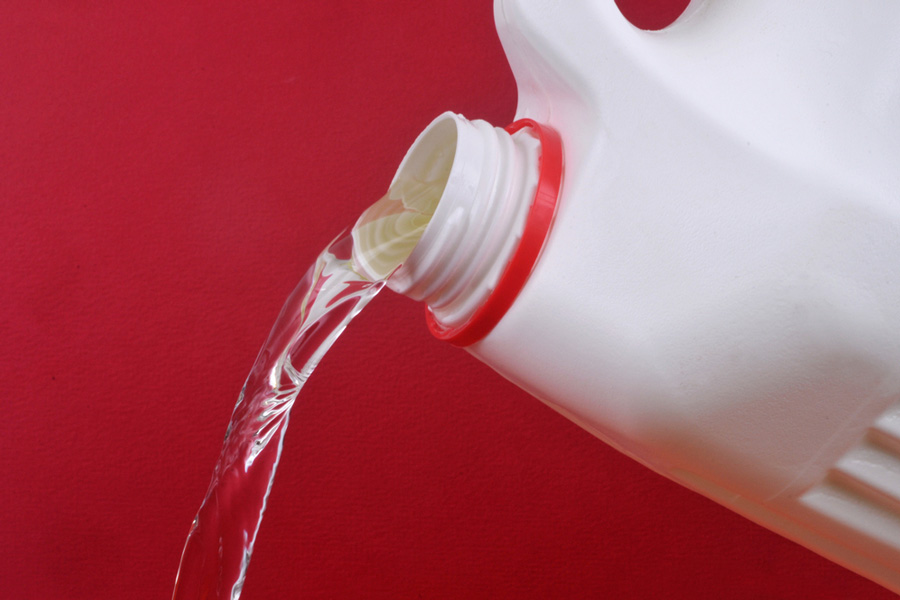Many people wonder if they can use bleach in their kitchen sink. The short answer is yes, but there are some things to consider before reaching for that bottle of bleach. Bleach is a powerful cleaning agent that can effectively remove stains and disinfect surfaces. However, it can also be harmful if not used properly. Let's explore the dos and don'ts of using bleach in your kitchen sink.Can I Use Bleach in My Kitchen Sink?
If you decide to use bleach to clean your kitchen sink, it's important to do so safely and correctly. The first step is to dilute the bleach with water. The recommended ratio is one part bleach to ten parts water. This will ensure that the bleach is not too strong and won't damage your sink or harm your skin. You can mix the solution in a spray bottle or a bucket, depending on the size of your sink. Next, you'll want to put on protective gear such as gloves and goggles to avoid any contact with the bleach. Then, spray or pour the diluted bleach onto your sink and let it sit for a few minutes. Use a scrub brush or sponge to gently scrub the surface, paying extra attention to any stained areas. Finally, rinse the sink thoroughly with water to remove any remaining bleach.How to Use Bleach in Your Kitchen Sink
Bleach is generally safe to use in kitchen sinks, as long as it is diluted and used properly. However, there are a few things to keep in mind to ensure your safety and the safety of your sink. First, never mix bleach with any other cleaning products, as this can create toxic fumes. Also, avoid using bleach on stainless steel sinks, as it can cause discoloration and damage the surface. Additionally, be cautious when using bleach on colored or porous sinks, as it can cause fading or staining.Is Bleach Safe to Use in Kitchen Sinks?
Bleach is a powerful disinfectant and can effectively kill bacteria and viruses in your sink. This is especially beneficial if you use your sink to wash raw meat or handle other potentially contaminated items. However, keep in mind that bleach is not an all-purpose cleaner. It is best used for disinfecting and removing tough stains, but it may not be effective at removing grease or other grime. In these cases, it's best to use a degreaser or a more mild cleaning agent.Using Bleach to Clean Your Kitchen Sink
If you're hesitant to use bleach in your kitchen sink, there are other options available. White vinegar is a natural and effective cleaning agent that can also disinfect your sink. Simply mix equal parts water and white vinegar and use it as you would the diluted bleach solution. You can also add a few drops of essential oils, such as lemon or tea tree, for a pleasant scent and added antibacterial properties. Baking soda is another great alternative to bleach. It is a mild abrasive that can help remove stains and deodorize your sink. To use, make a paste with water and baking soda and apply it to your sink. Let it sit for a few minutes before scrubbing and rinsing with water.Bleach Alternatives for Cleaning Kitchen Sinks
As mentioned earlier, the recommended ratio for diluting bleach for kitchen sink cleaning is one part bleach to ten parts water. However, if you're dealing with tough stains, you can increase the bleach to water ratio to one part bleach to five parts water. Just be sure to wear gloves and protective gear and rinse the sink thoroughly afterwards. It's also important to note that bleach loses its effectiveness over time, so it's best to mix a fresh solution each time you use it. Additionally, do not store the diluted bleach solution for more than 24 hours, as it can lose its potency and may not effectively clean and disinfect your sink.How to Properly Dilute Bleach for Kitchen Sink Cleaning
When using bleach in your kitchen sink, it's important to take some precautions to ensure your safety. Make sure the area is well-ventilated to avoid inhaling fumes. If you do experience any respiratory irritation, leave the room immediately and seek fresh air. Also, be cautious when using bleach around children and pets, as it can be harmful if ingested. Always store bleach in a secure place, away from reach.Precautions When Using Bleach in Kitchen Sinks
Bleach is a powerful stain remover and can effectively get rid of tough stains in your kitchen sink. However, it's important to note that bleach is not a miracle worker. It may not be effective on all types of stains and may not completely remove them on the first try. If you're dealing with stubborn stains, you may need to repeat the cleaning process a few times or try a different cleaning method. It's also important to identify the type of stain you're dealing with before using bleach. For example, if you have a rust stain, bleach may actually make it worse. In this case, it's best to use a rust remover or a more specific cleaning agent for rust stains.Removing Stains from Kitchen Sinks with Bleach
The frequency of using bleach in your kitchen sink will depend on your cleaning habits and how often you use your sink. If you use your sink frequently for tasks such as washing dishes or preparing food, it's recommended to clean and disinfect it at least once a week. If you only use your sink sparingly, you can clean it less frequently. However, if you notice any stains or buildup, it's best to address them as soon as possible to prevent them from becoming more difficult to remove.How Often Should You Use Bleach in Your Kitchen Sink?
Bleach is not recommended for unclogging kitchen sinks. While it may seem like a cost-effective and easy solution, bleach is not powerful enough to dissolve clogs. It may also damage your pipes and cause them to corrode. Instead, use a plunger or a drain snake to remove clogs, or try using a natural drain cleaner such as a mixture of baking soda and vinegar. In conclusion, bleach can be safely and effectively used in your kitchen sink, but it's important to use it correctly and take precautions. There are also alternative cleaning agents available if you prefer not to use bleach. Remember to always dilute bleach and wear protective gear, and never mix it with other cleaning products. With proper usage and care, your kitchen sink can be kept clean and sanitary for all your daily tasks.Can You Use Bleach to Unclog a Kitchen Sink?
How to Properly Use Bleach in Your Kitchen Sink
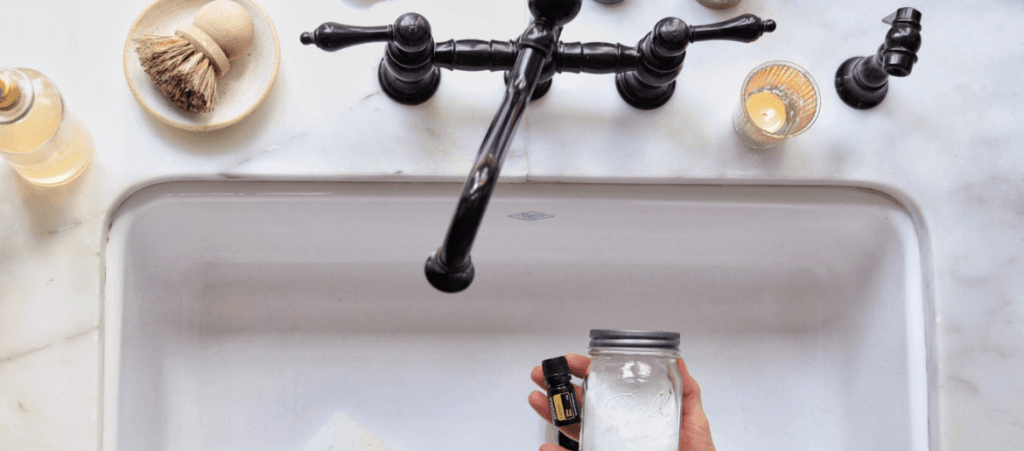
Why Use Bleach in Your Kitchen Sink?
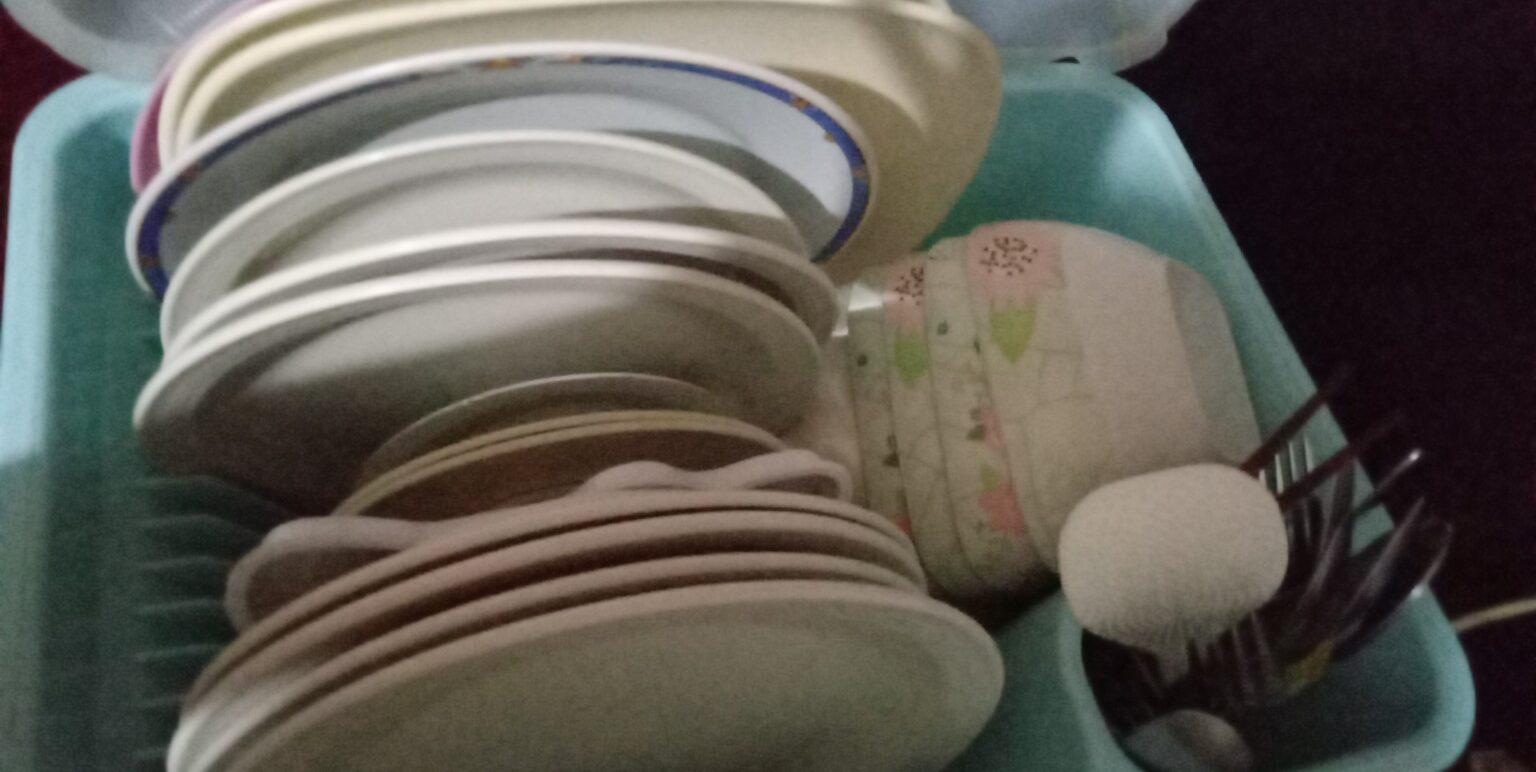 Bleach is a powerful cleaning agent that is commonly used in household cleaning. It is known for its ability to kill germs, bacteria, and viruses, making it an effective solution for cleaning and disinfecting surfaces. In the kitchen, where food is prepared and dishes are washed, it is important to keep the sink clean and free of harmful bacteria. This is where bleach comes in handy. By using bleach in your kitchen sink, you can ensure that it is properly sanitized and free of any potential health hazards.
Bleach is a powerful cleaning agent that is commonly used in household cleaning. It is known for its ability to kill germs, bacteria, and viruses, making it an effective solution for cleaning and disinfecting surfaces. In the kitchen, where food is prepared and dishes are washed, it is important to keep the sink clean and free of harmful bacteria. This is where bleach comes in handy. By using bleach in your kitchen sink, you can ensure that it is properly sanitized and free of any potential health hazards.
Precautions When Using Bleach
 Before using bleach in your kitchen sink, it is important to take some precautions to ensure your safety. Bleach is a strong chemical and can cause skin irritation if it comes in contact with your skin. It is recommended to wear rubber gloves when handling bleach. Additionally, make sure to properly dilute the bleach with water as using undiluted bleach can damage your sink and cause discoloration. It is also important to have proper ventilation while using bleach, as inhaling its fumes can be harmful.
Before using bleach in your kitchen sink, it is important to take some precautions to ensure your safety. Bleach is a strong chemical and can cause skin irritation if it comes in contact with your skin. It is recommended to wear rubber gloves when handling bleach. Additionally, make sure to properly dilute the bleach with water as using undiluted bleach can damage your sink and cause discoloration. It is also important to have proper ventilation while using bleach, as inhaling its fumes can be harmful.
How to Use Bleach in Your Kitchen Sink
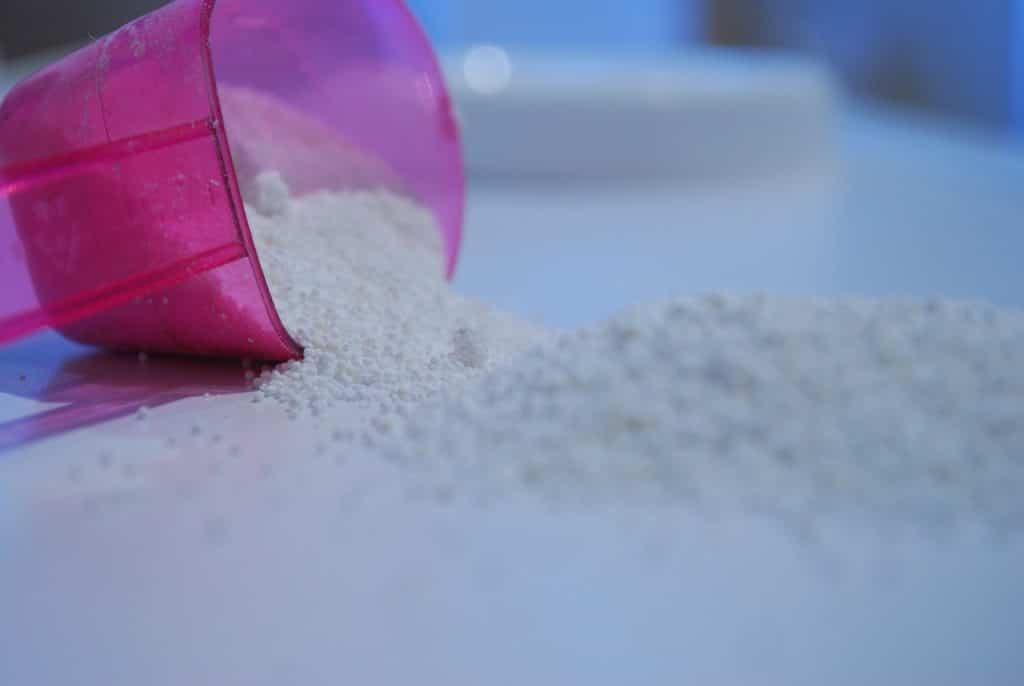 Now that you know the importance of using bleach in your kitchen sink and the precautions to take, here is a step-by-step guide on how to properly use it:
Step 1:
Start by cleaning your sink with hot soapy water to remove any dirt, grime, or food residue.
Step 2:
Rinse your sink thoroughly with hot water.
Step 3:
Mix one tablespoon of bleach with one gallon of water in a bucket or container.
Step 4:
Dip a clean cloth or sponge into the bleach solution and wipe down the entire surface of your sink.
Step 5:
Let the solution sit for 10 minutes to effectively kill any germs or bacteria.
Step 6:
Rinse your sink with hot water and dry it with a clean towel.
Now that you know the importance of using bleach in your kitchen sink and the precautions to take, here is a step-by-step guide on how to properly use it:
Step 1:
Start by cleaning your sink with hot soapy water to remove any dirt, grime, or food residue.
Step 2:
Rinse your sink thoroughly with hot water.
Step 3:
Mix one tablespoon of bleach with one gallon of water in a bucket or container.
Step 4:
Dip a clean cloth or sponge into the bleach solution and wipe down the entire surface of your sink.
Step 5:
Let the solution sit for 10 minutes to effectively kill any germs or bacteria.
Step 6:
Rinse your sink with hot water and dry it with a clean towel.
Alternative Cleaning Method
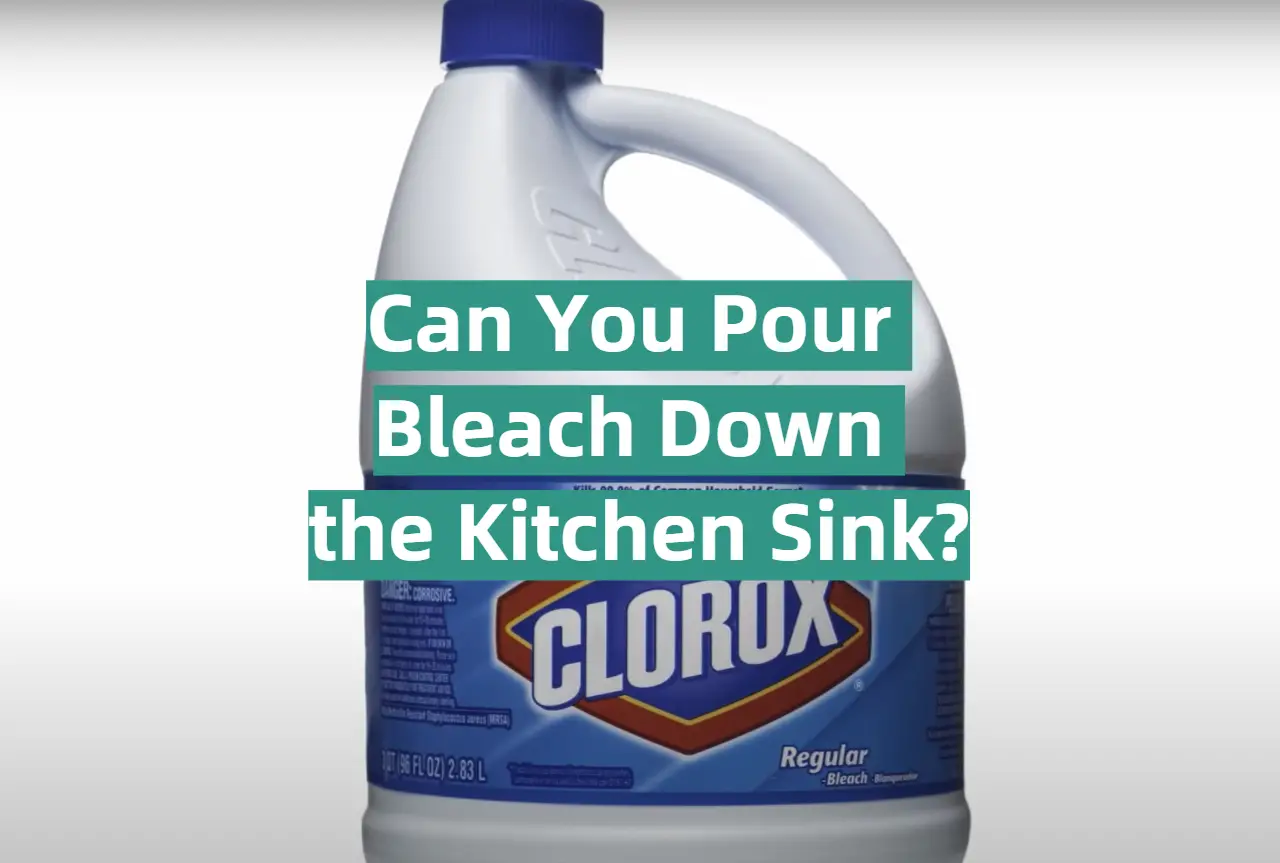 If you have a stainless steel sink, you can also use a bleach-based cleaning spray specifically designed for stainless steel. Simply spray the solution onto the surface of your sink and wipe it down with a clean cloth or sponge. Then, rinse it with hot water and dry it with a towel.
If you have a stainless steel sink, you can also use a bleach-based cleaning spray specifically designed for stainless steel. Simply spray the solution onto the surface of your sink and wipe it down with a clean cloth or sponge. Then, rinse it with hot water and dry it with a towel.
Final Thoughts
 Using bleach in your kitchen sink is an effective way to keep it clean and free of bacteria. However, it is important to use it properly and take necessary precautions to ensure your safety. By following these simple steps, you can have a sparkling clean and sanitized kitchen sink. Remember to always read and follow the instructions on the bleach bottle for best results.
Using bleach in your kitchen sink is an effective way to keep it clean and free of bacteria. However, it is important to use it properly and take necessary precautions to ensure your safety. By following these simple steps, you can have a sparkling clean and sanitized kitchen sink. Remember to always read and follow the instructions on the bleach bottle for best results.



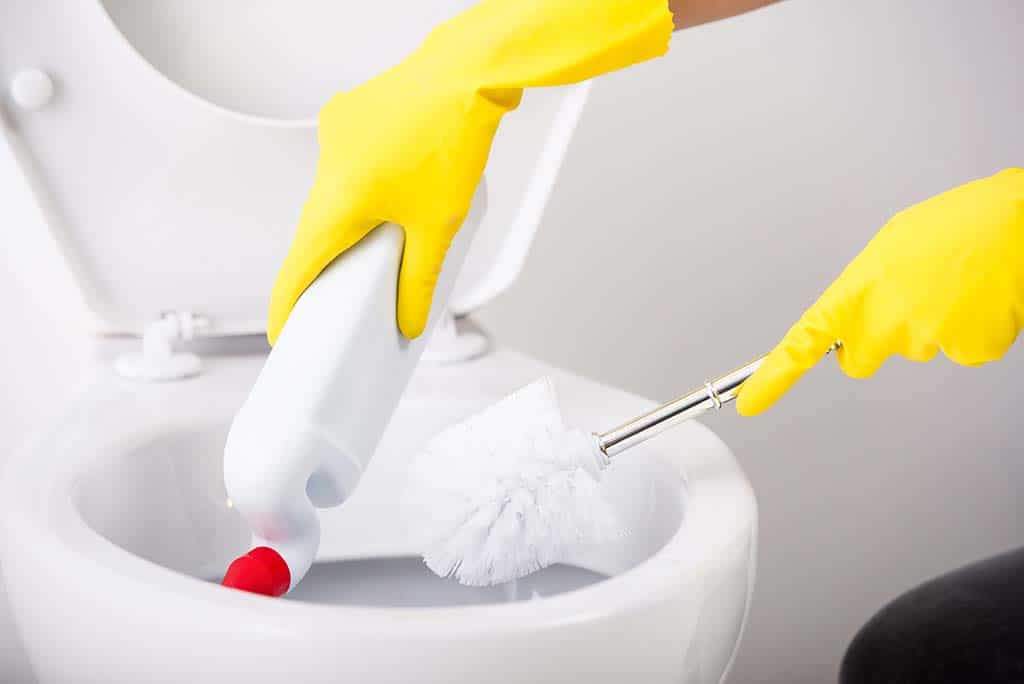
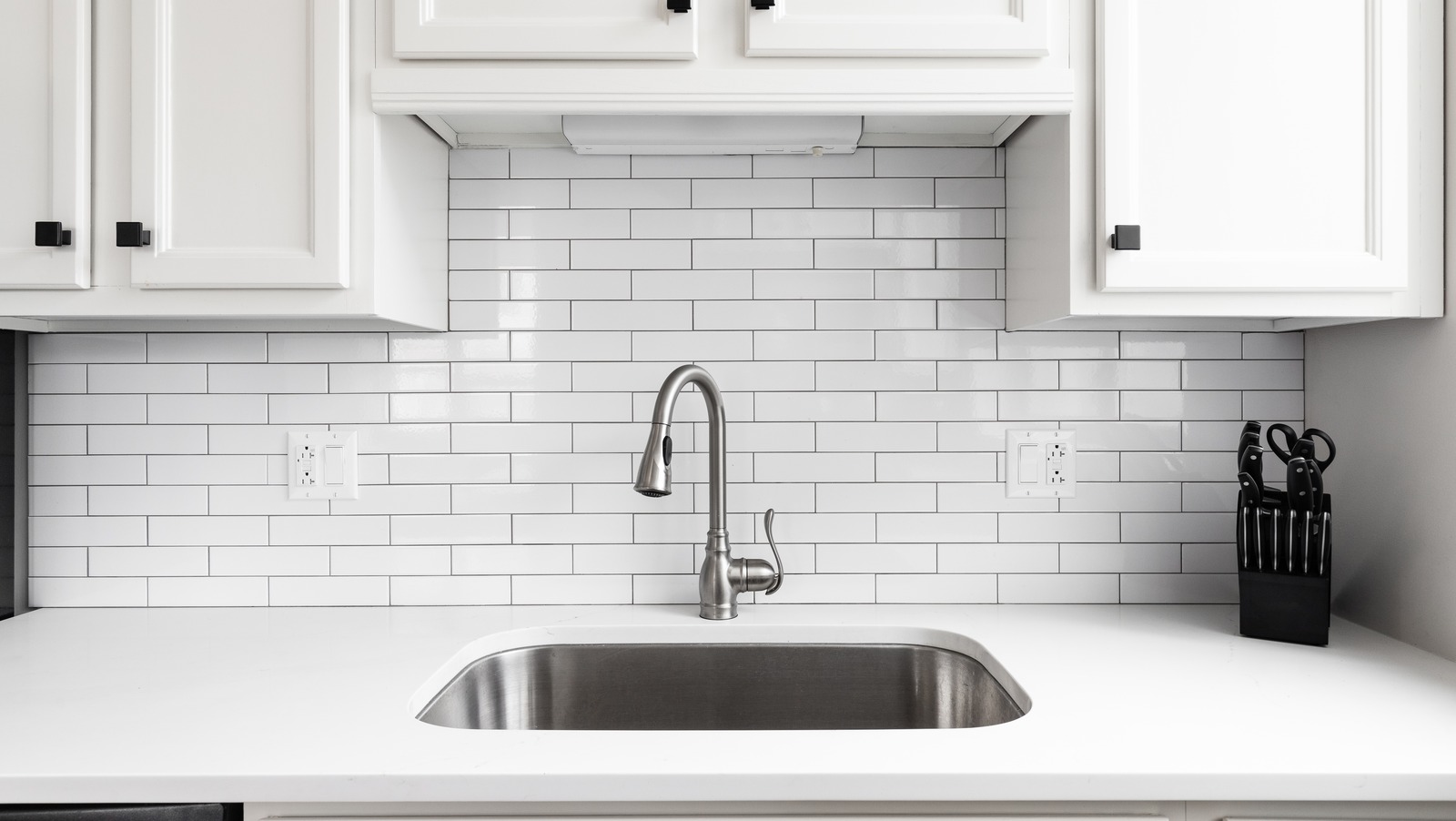
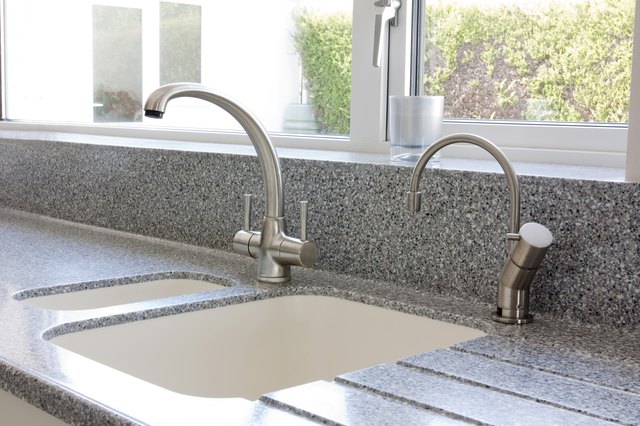



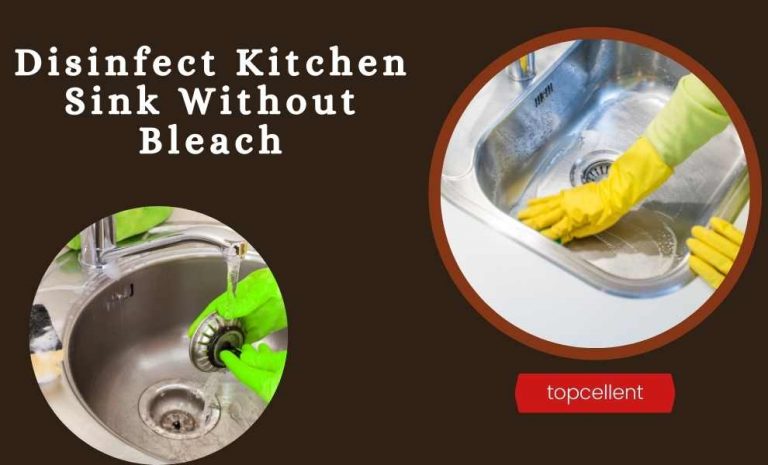


:max_bytes(150000):strip_icc()/make-your-own-disinfectant-solution-998274-V1-16d759206c054b1fb53410b90c57744c.jpg)
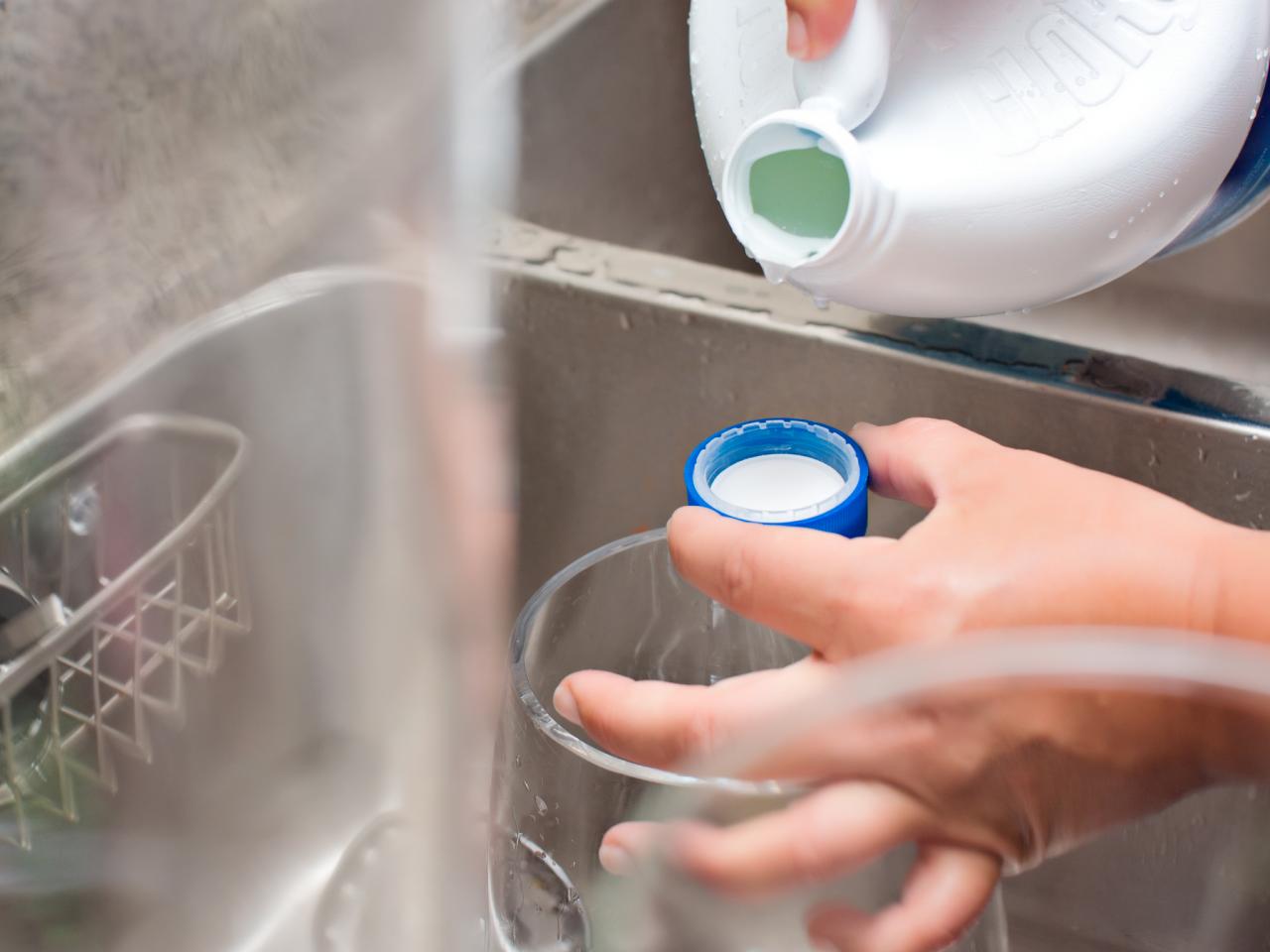

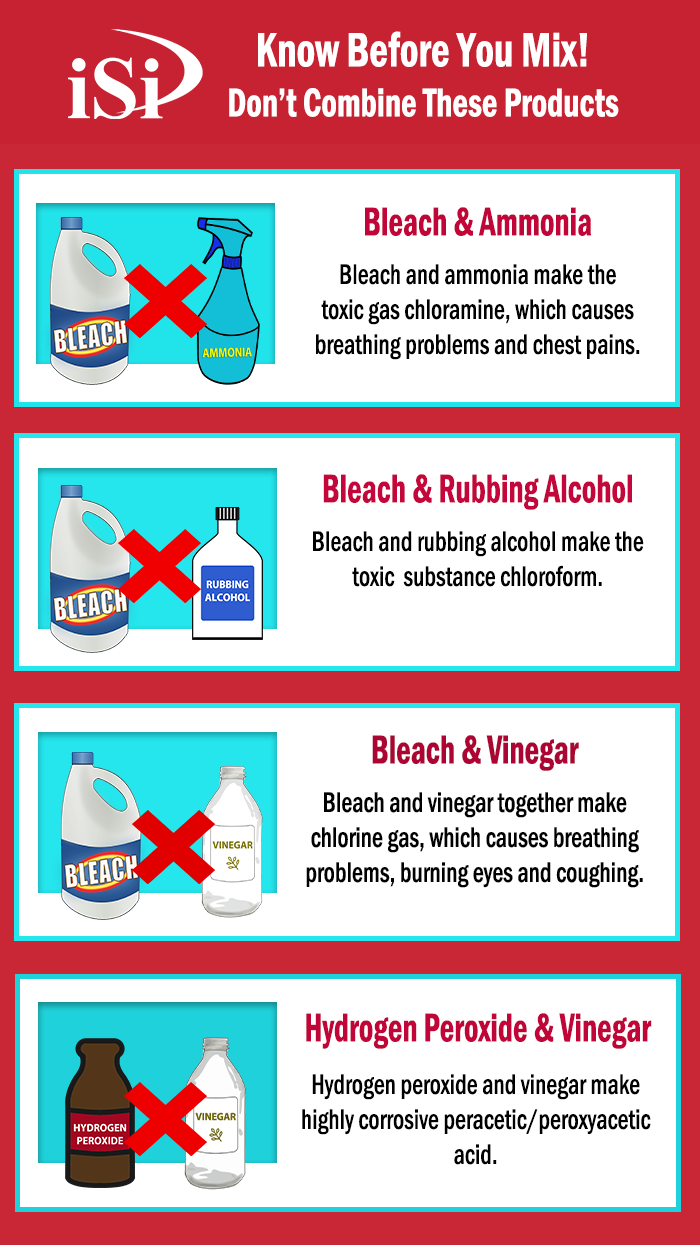


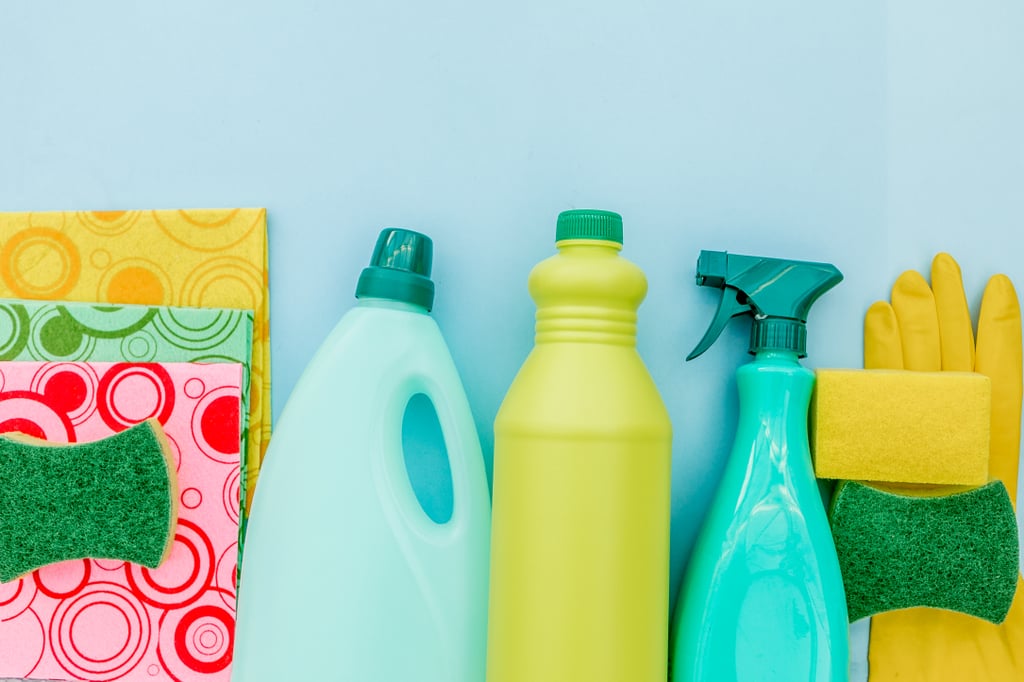
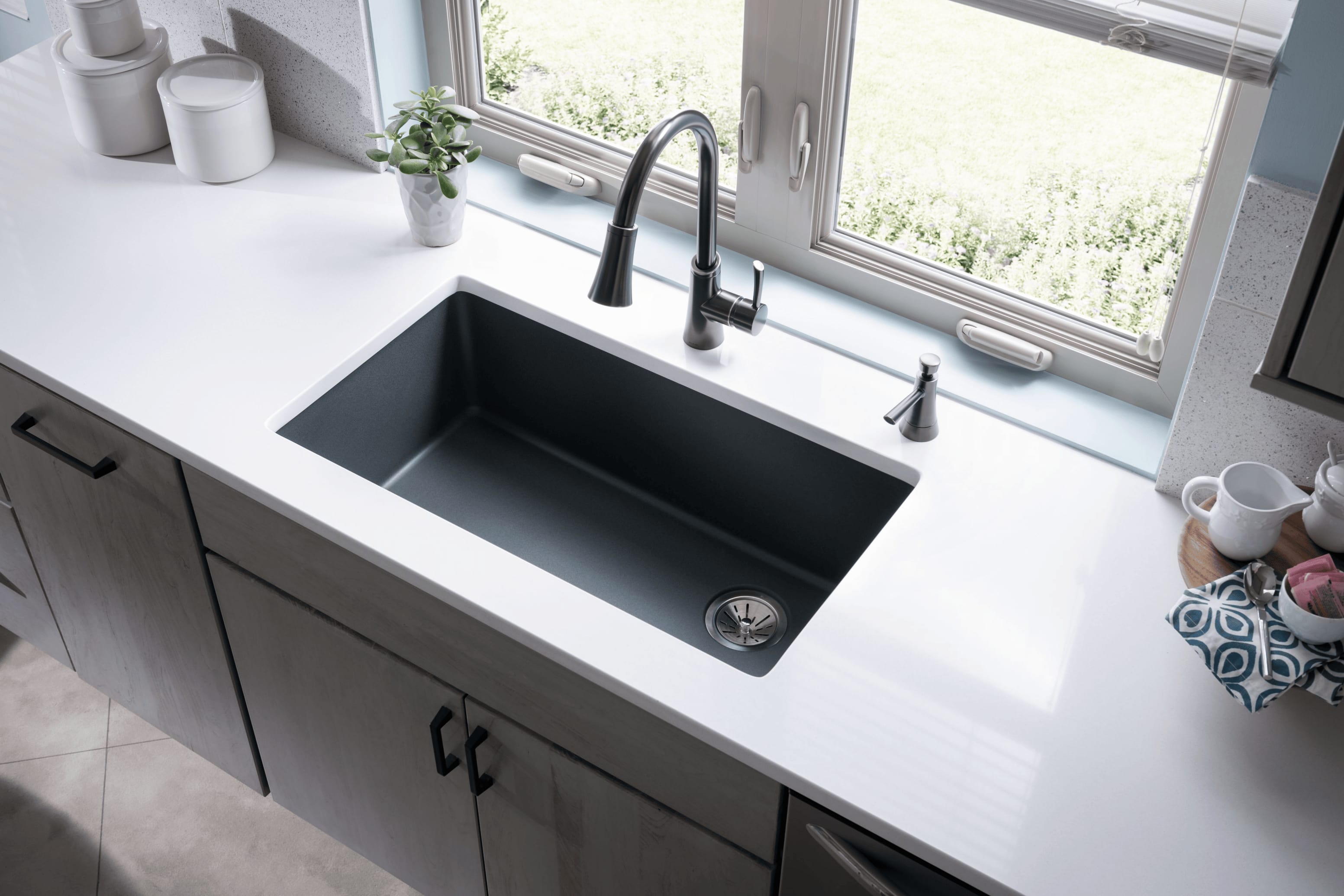
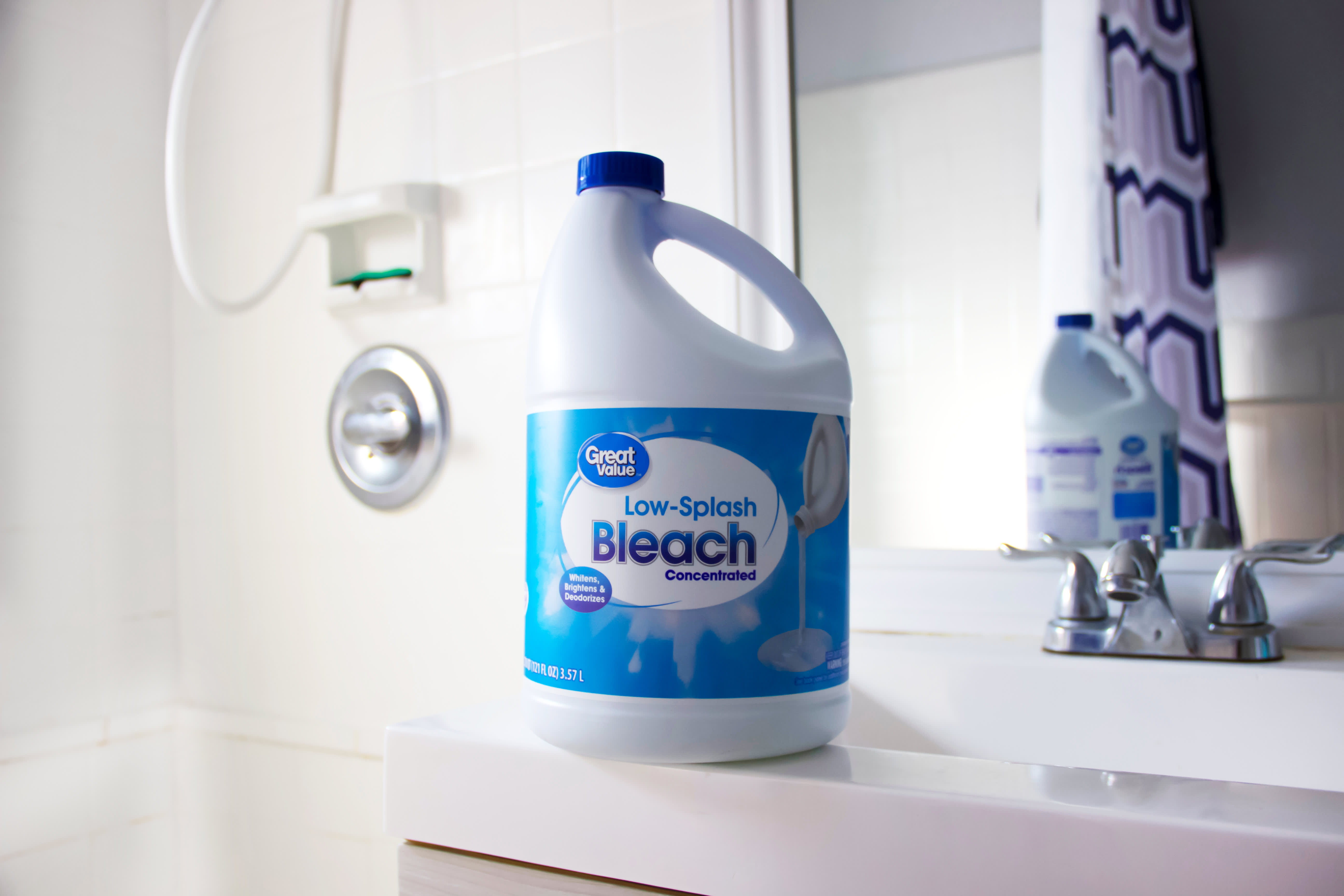
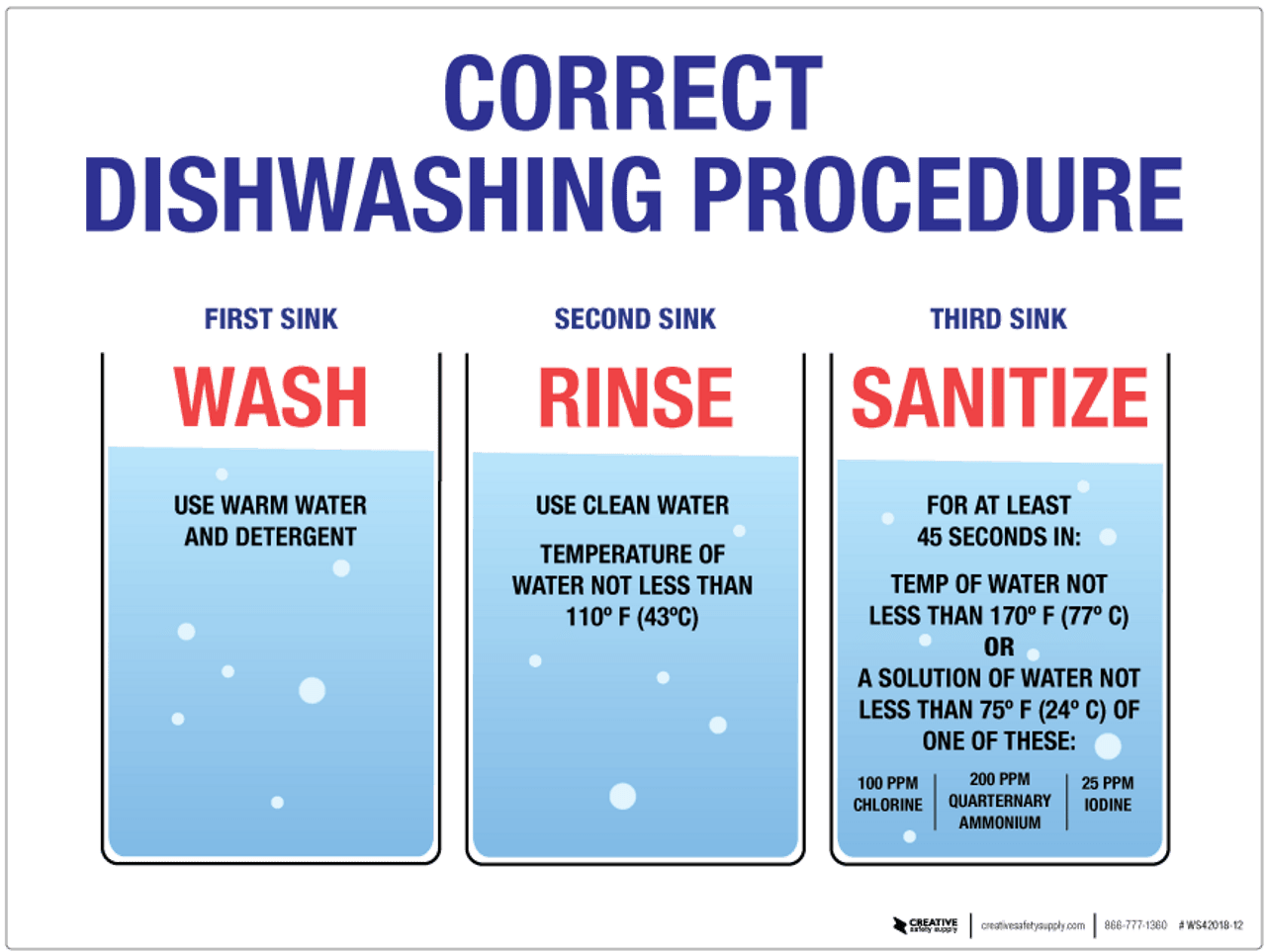
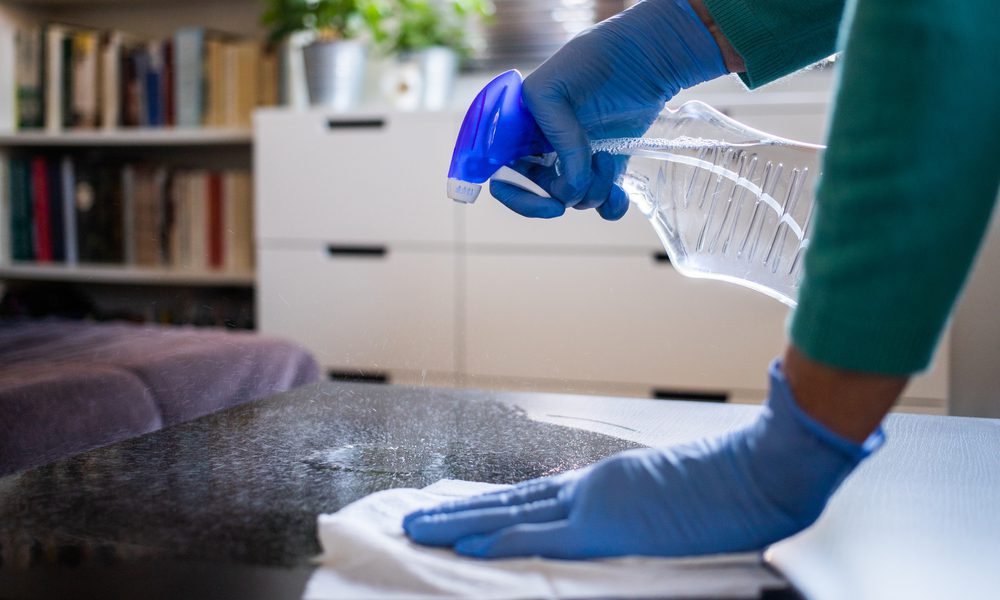



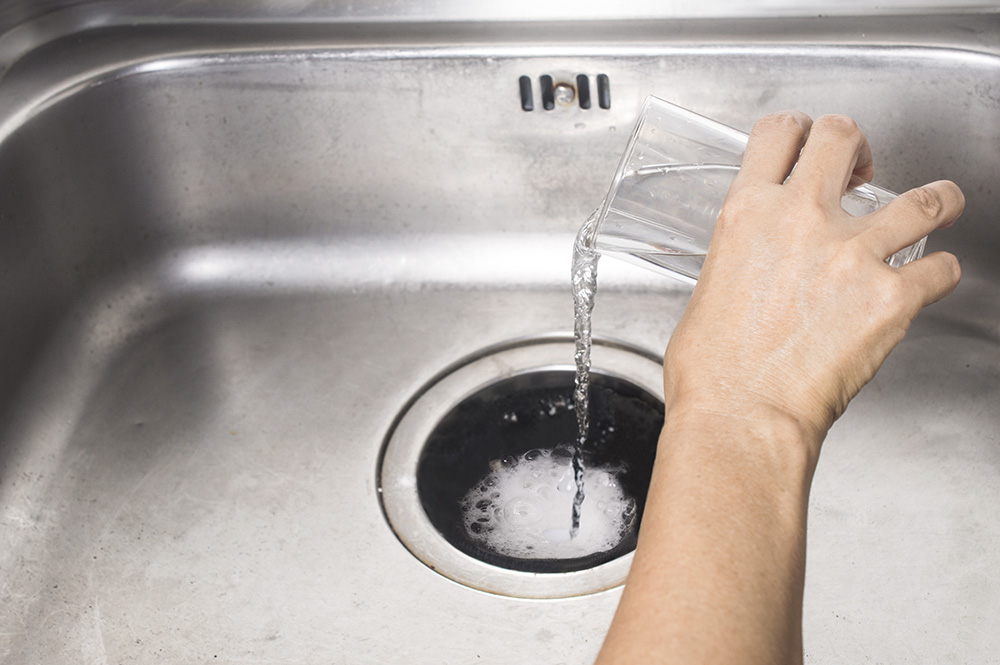



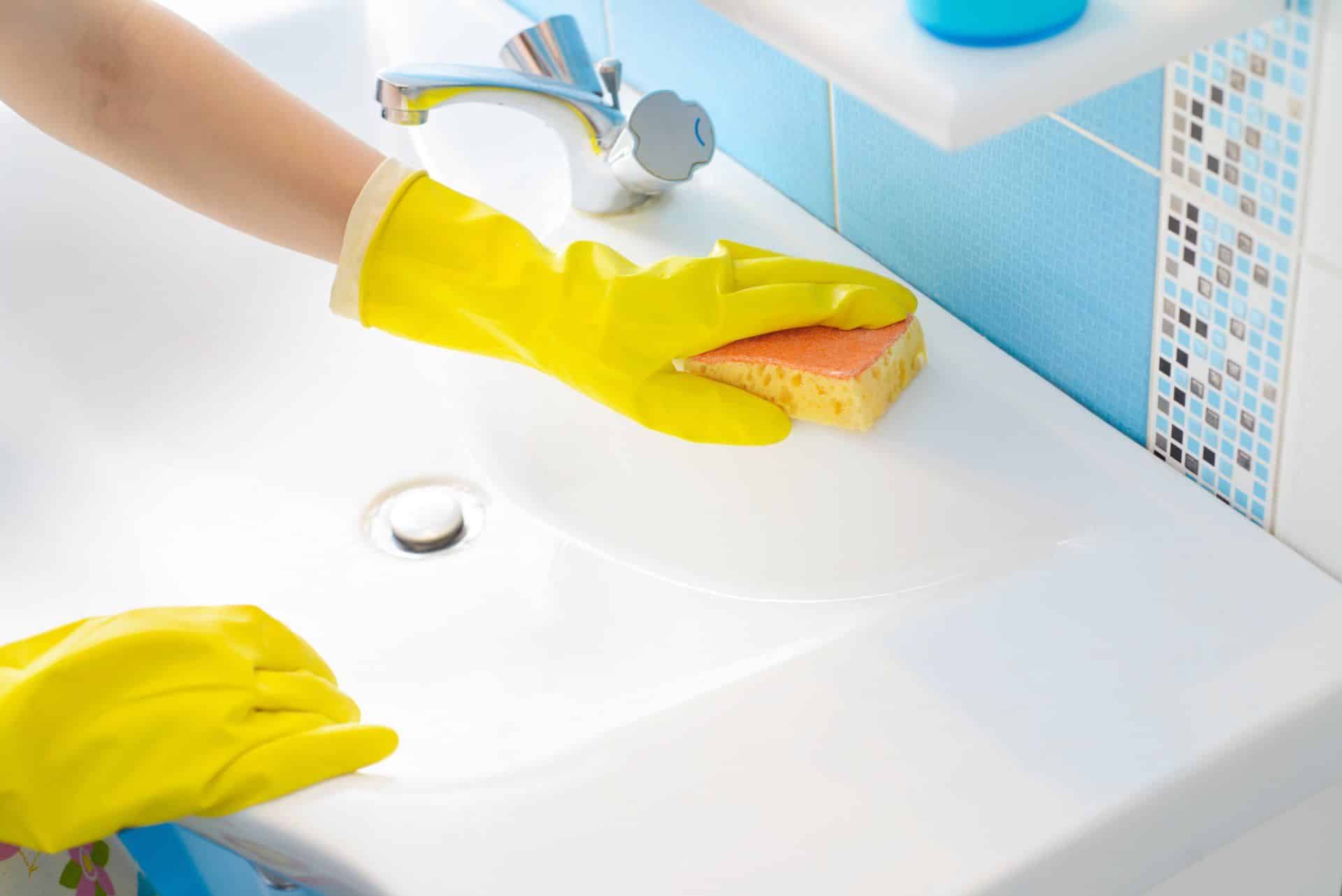

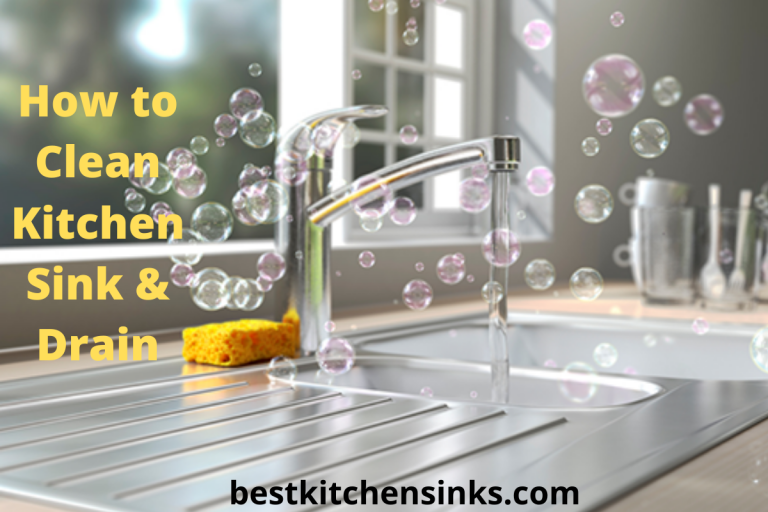



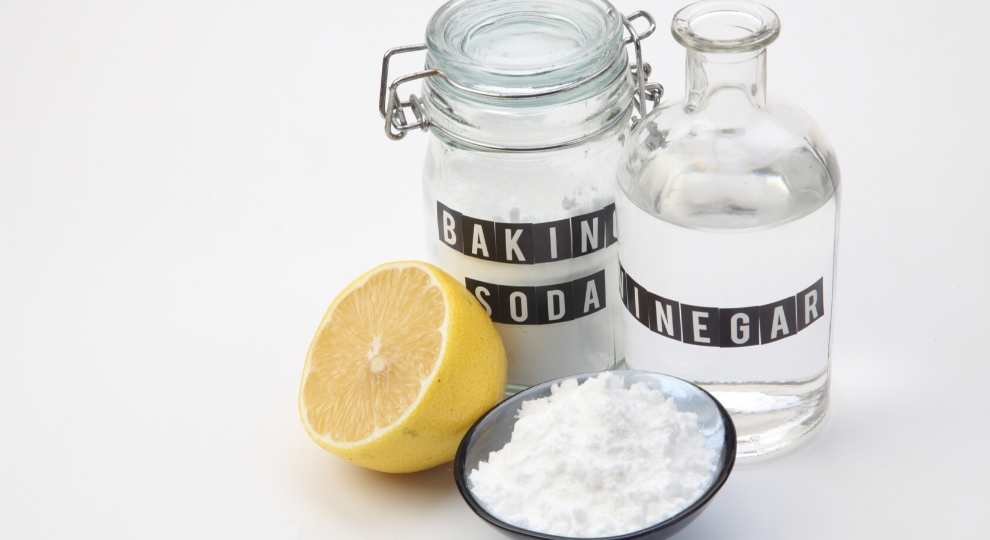
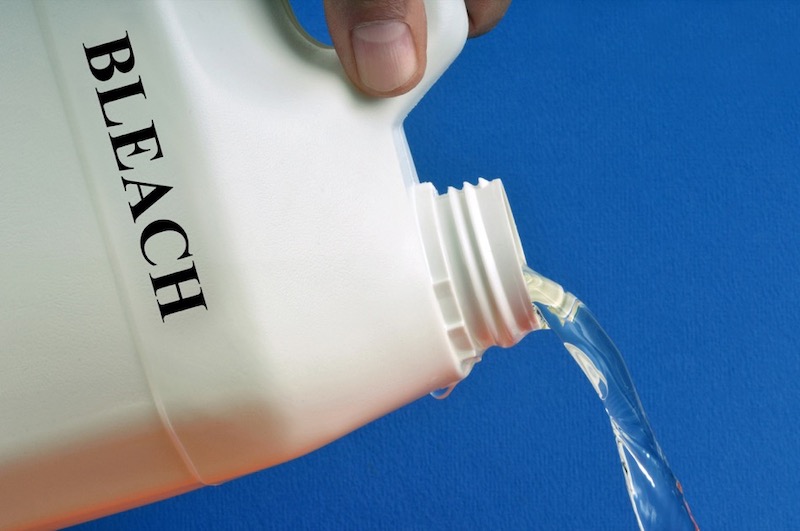


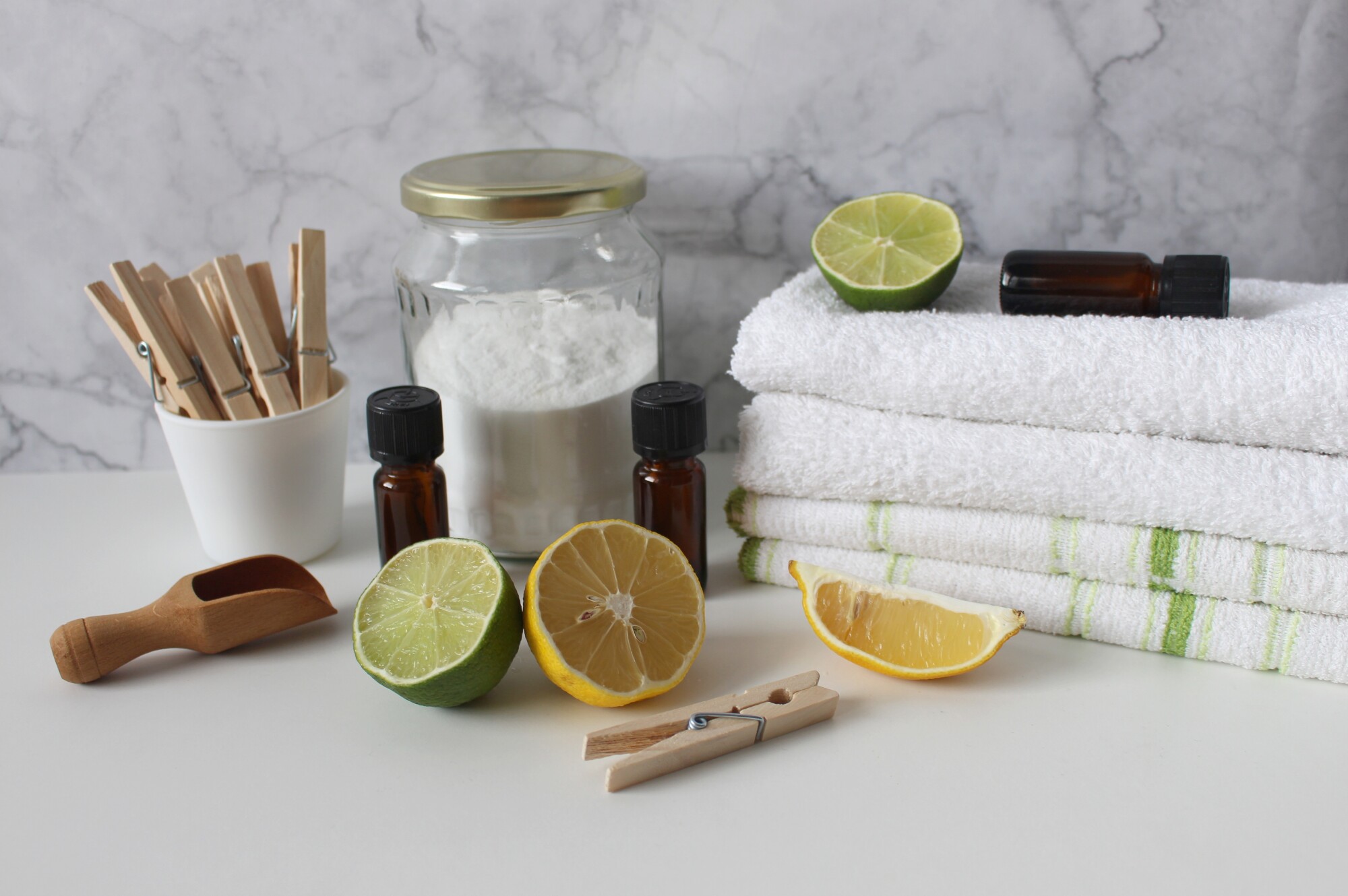
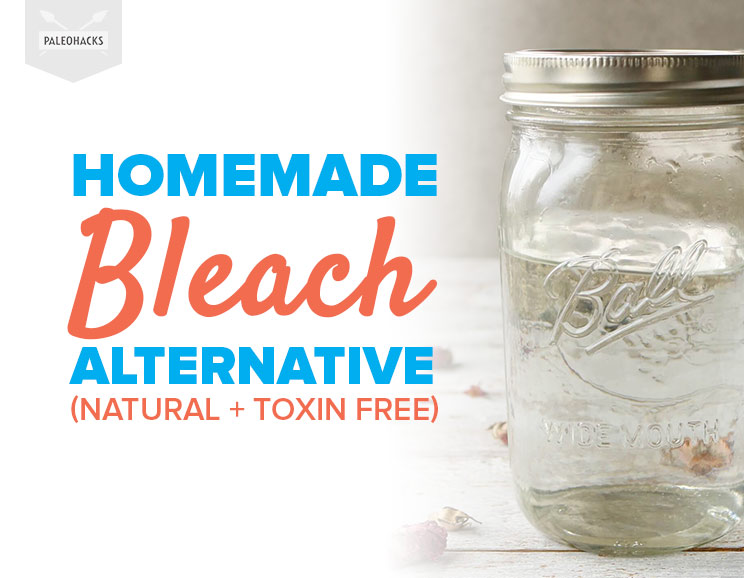




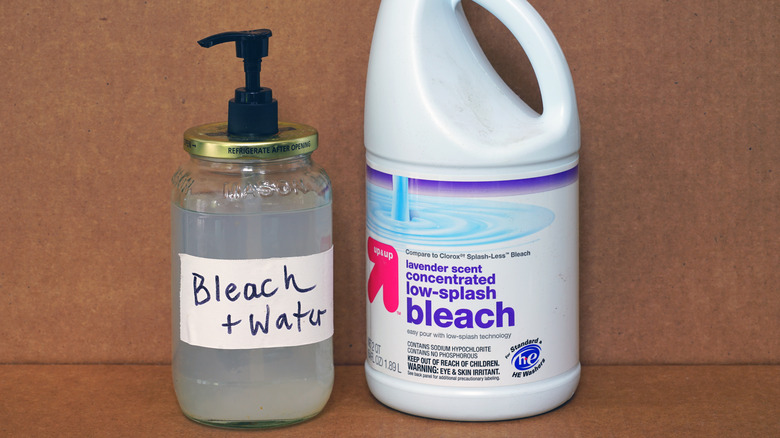
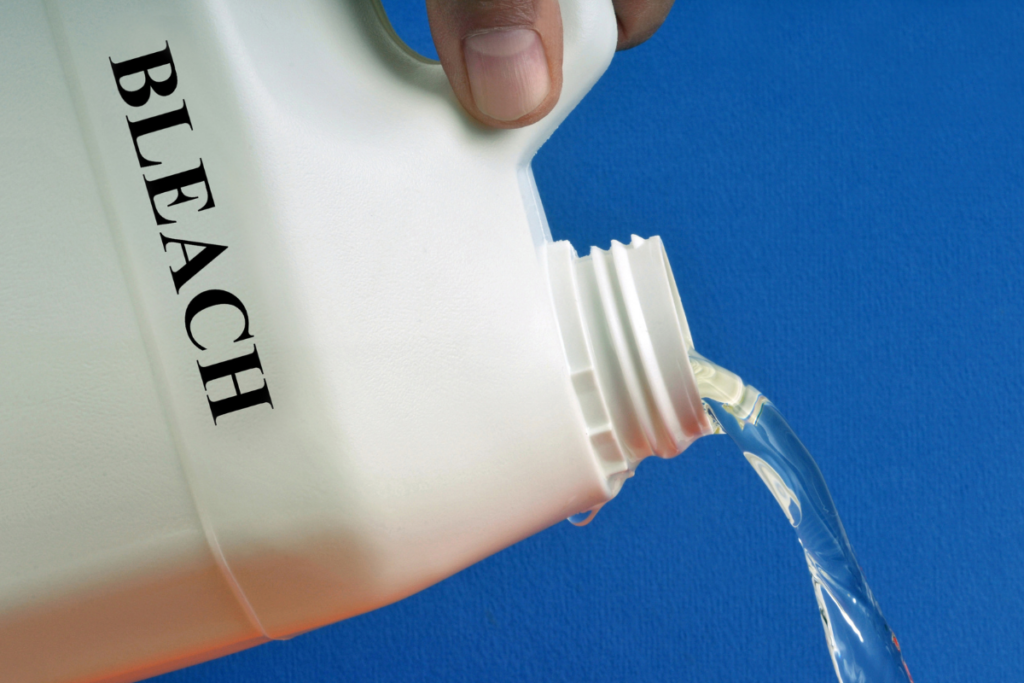
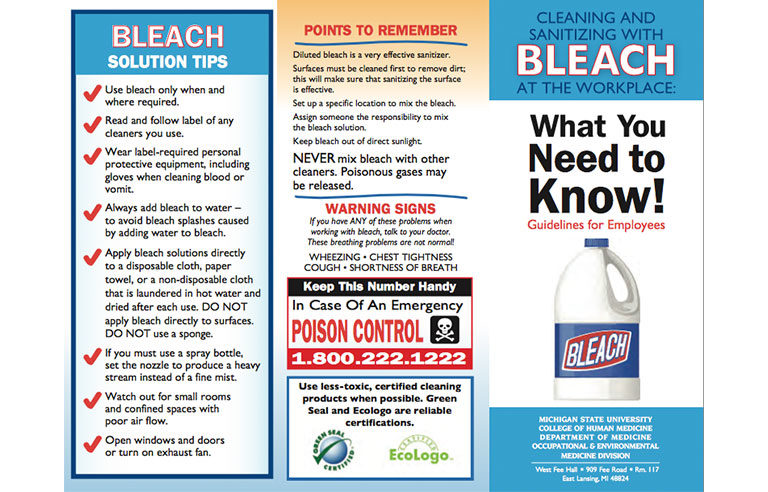




.jpg)
